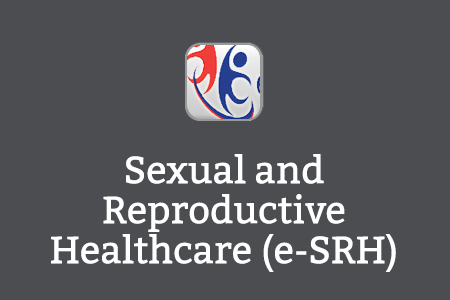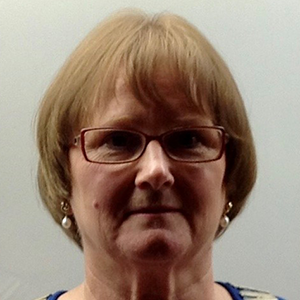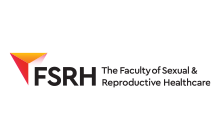

About the Sexual and Reproductive Healthcare programme
The e-SRH programme has been developed by the Faculty of Sexual and Reproductive Healthcare (FSRH) in partnership with Health Education England elearning for healthcare (HEE elfh).
The programme supports a range of healthcare professionals to gain the necessary knowledge to successfully support patients with their SRH needs.
Enhanced content, relevant to your workplace
The e-SRH programme has been updated to be more relevant to current practice and complement the redesigned FSRH Diploma (DFSRH) as well as other FSRH qualifications. It is an excellent learning resource to build your SRH knowledge.
Each session’s learning outcomes are clearly stated alongside the FSRH Diploma assessments, enabling candidates to better tailor their learning for their own needs.
-
“Up-to-date and tailored to your workforce, the eSRH is an excellent learning resource for anyone working in a sexual and reproductive healthcare role. It’s more interactive, accessible and convenient, and the certificates of completion are so useful for your portfolio.”
Dr Asha Kasliwal, President, FSRH
e-SRH curriculum
The updated e-SRH programme comprises of 30 sessions organised around 13 different topics. Sessions are 20-30 minutes in duration and are interactive and accessible.
Learners can access information, read articles, undertake self-assessments, view video clips and animation, along with real-life case studies to support learning.
Courses 17 and 18 from the previous eSRH, have been added to this new programme. These courses are currently being updated and will become new courses 14 and 15 at a later date. Courses 17 and 18 are fit for purpose and are necessary learning for the FSRH Letters of Competence (LoCs). Users will be informed when courses 17 and 18 are being retired and replaced with courses 14 and 15.
-
1. Basic anatomy and physiology
This course introduces the anatomy and physiology of the male and female reproductive systems.
-
2. Consent and history taking
This course looks at medical history taking including sexual history taking and risk assessment for sexually transmitted infections (STIs) and pregnancy.
-
3. Contraceptive choices
This course describes, in detail, all the contraceptive methods currently available in the UK.
-
4. Emergency contraception
This course details the different methods of emergency contraception (EC), including their indications and use. It explores the effectiveness of each method as well as how to advise women when to take a pregnancy test. It addresses the advantages and disadvantages of each method and provides guidance around conducting an effective consultation with a woman requiring emergency contraception.
-
5. Contraception: complications/side-effects
This course addresses bleeding problems and other side effects attributable to the use of hormonal contraception. They provide step-by-step practical guidance on how to manage side effects and ensure continuance of the method by the user.
-
6. Planning pregnancy
This course addresses how to conduct a pre-conception consultation, including lifestyle factors, risks, fertility implications and complications of existing medical conditions that could impact on pregnancy.
-
7. Unintended pregnancy and abortion
This course discusses unintended pregnancy, how to conduct a consultation with women seeking abortions or those who are undecided. It also gives a synopsis of abortion procedures and referral pathways for obtaining termination of pregnancy. It gives a brief overview of the legislative framework for conducting abortions legally in the UK. This is governed by the Abortion act 1967 (amended 1990) which does not apply equally to all countries in the UK. The position in Northern Ireland is mentioned briefly as abortion in NI is not covered by the 1967 act.
-
8. Early pregnancy
This course details the symptoms of early pregnancy, including complications and how to read a pregnancy test appropriately. It also discusses when future pregnancy tests may be required.
-
9. Sexually Transmitted Infections (STIs)
This course details current tests used for STI screening including HIV and BBV. It discusses how to screen asymptomatic patients, as well as the management of abnormal vulvo-vaginal symptoms, pelvic pain, genital ulceration, warts and herpes. It outlines the principles of partner notification when dealing with STIs.
-
10. Needs of specific groups
This course addresses identified groups within society and some of their specific SRH needs. It discusses where these needs should be taken into account when taking a medical history and responding through treatment and management, accordingly.
-
11. Adult and child/young person (CYP) safeguarding/child protection
This course addresses procedures and referral pathways in relation to both children and young people and adult safeguarding. More specifically it addresses key areas within these including domestic violence, female genital mutilation (FGM), sexual assault and the management of STI, emergency contraception, post exposure prophylaxis (PEP) and child sexual exploitation.
-
12. Psychosexual medicine
This course provides an introduction to the concept of sexual dysfunction and the impact of sexual dysfunction on patients. It discusses the causes, initial assessment, and referral pathways involved in the management of sexual dysfunction.
-
13. Cervical screening
This course outlines the principles of cervical screening programmes, as well as causes and prevalence of cervical abnormalities.
-
17. Additional Training: Subdermal Contraceptive Implants (SDI)
This course provides mandatory learning for the LoCs relating to SDIs. It outlines the fitting and removal of SDIs as well as local anaesthesia and its use and side-effects. Methods around counselling a patient for an SDI, managing the side effects, and the benefits and disadvantages of the device are also discussed.
-
18. Additional Training: Intrauterine techniques (IUT)
This course provides mandatory learning for the LoCs relating to IUC. It outlines the insertion and removal techniques for IUC, as well as techniques for using local anaesthesia for the procedure. It discusses the types of devices available, how to manage side effects, complications from fitting, and the management of emergencies in IUC, including the use of emergency drugs.
e-SRH editors

Marnie Greenrod
FSRH project manager
Dr Vivian Iguyovwe
e-SRH Editorial Lead
Dr Theresa Laverty
e-SRH QA Editorial Lead
Dr Cindy Farmer
e-SRH QA Build Lead
Dr Anne Lashford
e-SRH Gold standard Clinical QA Lead
Dr Jo Lawton
e-SRH Gold standard QA Lead
elfh team

Moz Cammack
Project Manager, HEE elearning for healthcare
Patricia Howe
Programme Manager, HEE elearning for healthcare
Wendy Lowe
Lead Learning Designer, HEE elearning for healthcare
Runam Prasad
Learning Designer, HEE elearning for healthcare
Paul Kelly
Learning Designer, HEE elearning for healthcare
Lyndsey Callion
Learning Designer, HEE elearning for healthcare
Stephen Gibbons
Learning Designer, HEE elearning for healthcare
Rashmi Chavda
Graphic Designer, HEE elearning for healthcare
How to access
In order to access the Sexual and Reproductive Healthcare programme, you will need an elfh account. If you do not have one, then you can register by selecting the Register button below.
To view the Sexual and Reproductive Healthcare programme, select the View button below. If you already have an account with elfh, you will also be able to login and enrol on the programme from the View button.
NHS healthcare staff in England
The Sexual and Reproductive Healthcare programme is also available to NHS healthcare staff via the Electronic Staff Record (ESR). Accessing this elearning via ESR means that your completions will transfer with you throughout your NHS career.
Further details are available here.
Not an NHS organisation?
If you are not an NHS health or care organisation and therefore do not qualify for free access elfh Hub, you may be able to access the service by creating an OpenAthens account.
To check whether or not you qualify for free access via OpenAthens, you can view the eligibility criteria and register on the ‘OpenAthens’ portal.
Registering large numbers of users
If you are a HR, IT or Practice Manager and would like to register and enrol large numbers of staff within your organisation for access onto the Sexual and Reproductive Healthcare programme, please contact elfh directly.
Organisations wishing to use their own LMS
For HR departments wanting to know more about gaining access to courses using an existing Learning Management System please contact elfh directly to express interest.
More information
Please select the following link for more information on how to use the elfh Hub.


